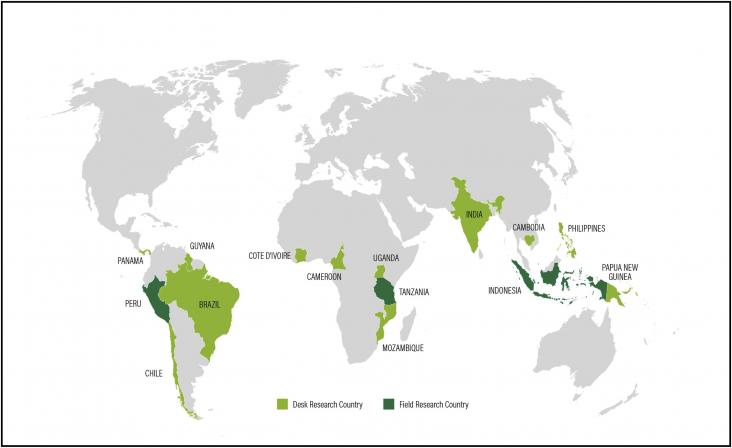An Article in support of SDGs 3, 12, and 15, investigating the adverse effects of deforestation on working conditions and all-cause mortality, highlighting how conservation and restoration projects could help to achieve public health benefits.
The Budyko framework provides a reliable parameter-sparse representation of runoff changes, and reveals that terrestrial water cycle is changing substantially under climate change.
This content aligns with Goal 15: Life on Land by exploring the fossil history, phylogeny, and diversity of crocodilians.
This article supports SDGs 11, 13, and 15 by revealing the threats and damages caused by the changed hydrological ecosystem in Hoh Xil of Tibetan Plateau.
Introduction: Air pollution may play an important role in the development of lung cancer in people who have never smoked, especially among East Asian women.
Ethiopia has experienced rapid urbanization over the past three decades. Several cities expanded rapidly and many satellite towns sprung up around the major cities.
This book chapter advances SDGs 13, 15, and 17 by explaining how conservation of species in the wild by creating sanctuaries is most successful if aspects of behavior such as territoriality, dispersal, and migration are factored into sanctuary design.
This book chapter advances SDGs 2, 13, and 15 by summarizing the impact of high temperature on wheat production, physiological traits contributing to heat tolerance, and how to integrate new tools such as trascriptomics, proteomics, metabolomics, and ionomics with plant breeding.

Indigenous and community lands, crucial for rural livelihoods, are typically held under informal customary tenure arrangements. This article reviews and maps 19 community land formalization and 14 company land acquisition procedures in 15 countries in Africa, Asia and Latin America. Comparing community and company procedures identifies multiple sources of inequity.
This book chapter advances SDGs 9, 13, and 15 by highlighting coastal management problems related to the reclamation process that have been addressed through geoinformatics. The findings of the study carried out offer a detailed overview of the quantity and quality of research materials reported thus far on the subject of the recycling process, remote sensing, and Geographical Information System innovations.
